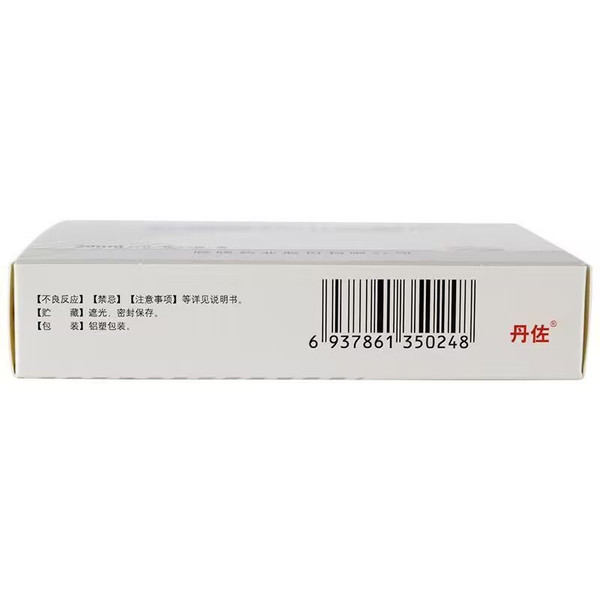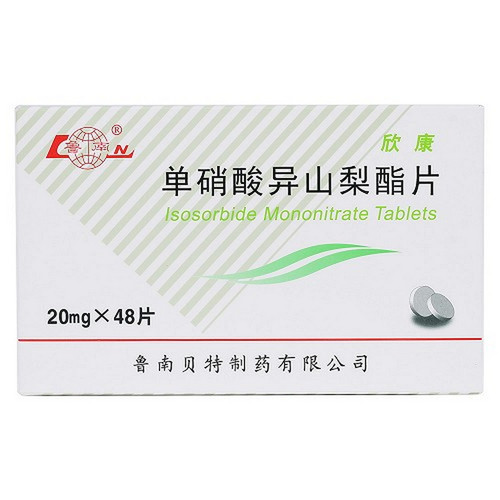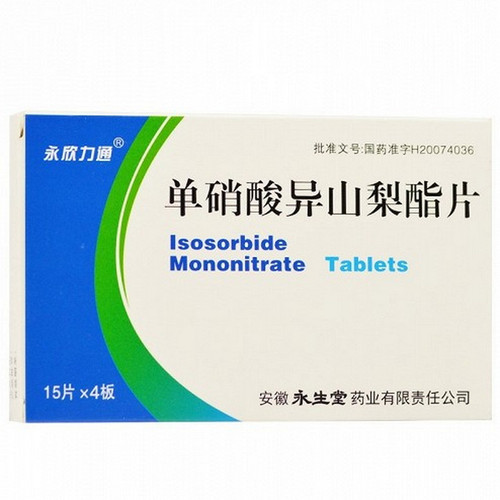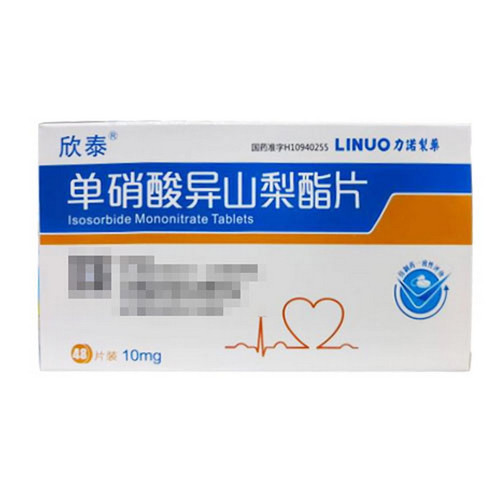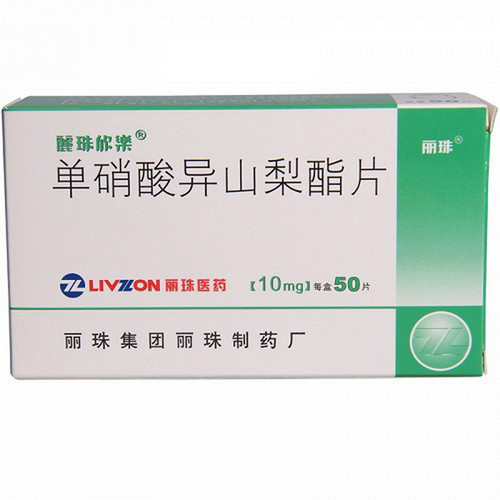Product Overview
[Drug Name]
Generic Name: Isosorbide Mononitrate Tablets
Trade Name: Danzuo
English Name: Isosorbide Mononitrate Tablets
Chinese Pinyin: Danxiaosuan Yishanlizhi Pian
[Ingredients]
Chemical name: 1,4:3,6-dianhydro-D-sorbitol-5-mononitrate. Molecular formula: C6H9NO6. Molecular weight: 191.14
[Appearance]
White or off-white tablets.
[Indications]
Long-term treatment of coronary heart disease; prevention of angina pectoris; treatment of persistent angina pectoris after myocardial infarction; combined with digitalis or diuretics for the treatment of chronic congestive heart failure.
[Dosage and Administration]
Oral. 10-20 mg three times a day, or as directed by a physician.
[Adverse Reactions]
Vasodilatory headaches caused by nitrates may occur initially, but these symptoms usually disappear after several days of continuous use. Facial flushing, dizziness, orthostatic hypotension, and reflex tachycardia may also occur. Rarely, significant hypotension, bradycardia, worsening angina, and syncope may occur.
[Contraindications]
Acute circulatory failure (shock, circulatory collapse); severe hypotension (systolic blood pressure 90 mmHg); acute myocardial infarction with low filling pressures (unless under continuous hemodynamic monitoring); hypertrophic obstructive cardiomyopathy; constrictive pericarditis or cardiac tamponade; severe anemia; glaucoma; increased intracranial pressure; and hypersensitivity to nitro compounds.
[Precautions]
In patients with acute myocardial infarction and low filling pressures, systolic blood pressure below 90 mmHg should be avoided. Use with caution in patients with aortic or mitral stenosis, orthostatic hypotension, and renal insufficiency.
[Use in Special Populations]
Precautions in Children:
This drug has been studied in adults. Comparative data are not available for use in children. Therefore, it is not recommended for use in children.
[Precautions for Pregnancy and Lactation]
No embryotoxic effects have been observed in animal studies, and it is unknown whether ISMN is excreted in breast milk. However, due to a lack of experience with its use in pregnant and lactating women, caution is advised.
[Precautions for Elderly Patients]
Elderly patients may be more sensitive to this class of drugs and may be more susceptible to reactions such as dizziness.
[Drug Interactions]
Combination use with other vasodilators, calcium antagonists, beta-blockers, antihypertensive drugs, tricyclic antidepressants, and alcohol may potentiate the blood pressure-lowering effects of this class of drugs.
[Pharmacological Actions]
Isosorbide mononitrate (ISMN) is the primary biologically active metabolite of isosorbide dinitrate. Like other organic nitrates, its primary pharmacological action is to relax vascular smooth muscle. ISMN releases nitric oxide (NO), which, like endothelial relaxing factor, activates guanylate cyclase, increasing cyclic guanosine monophosphate (cGMP) in smooth muscle cells. This relaxes vascular smooth muscle, dilating peripheral arteries and veins and enhancing the venous dilation effect. Venodilation causes blood to accumulate in the periphery, reducing ventricle return and lowering left ventricular end-diastolic pressure and pulmonary capillary wedge pressure (preload). Arterial dilation reduces peripheral vascular resistance, systolic arterial pressure, and mean arterial pressure (afterload). Coronary artery dilation increases coronary perfusion. The overall effect is reduced myocardial oxygen consumption, increased oxygen supply, and relief of angina pectoris. No carcinogenic or mutagenic effects were observed in animal studies.
[Storage]
Store in a sealed container away from light.
[Specifications]
20 mg
[Packaging]
Aluminum-plastic packaging with a laminated film bag, 48 tablets/box
[Approval Number]
National Drug Approval Number H20066014
[Manufacturer]
Company Name: Chenxin Pharmaceutical Co., Ltd.
